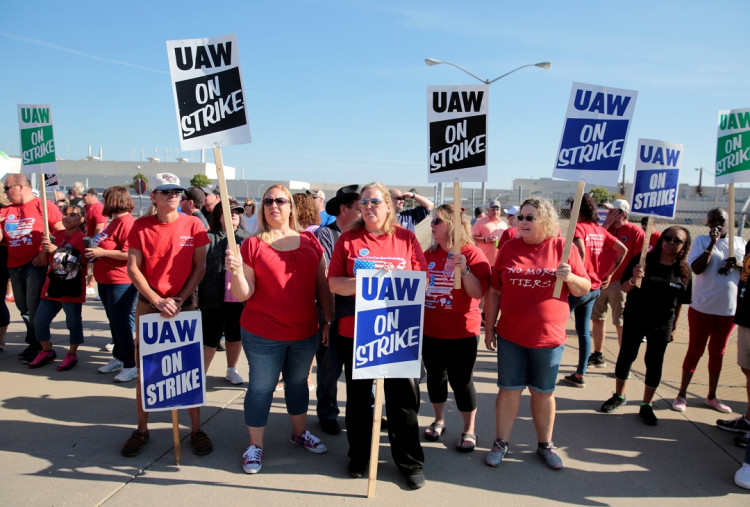Last week, General Motors Co came under fire from labor groups and politicians when it decided to stop paying for the healthcare insurance of more than 46,000 of its employees, including 17,000 that are currently on strike.
In a surprising reversal, GM announced on Thursday that it will continue paying the insurance of its striking hourly workers.
The strike, which is now on its 11th day, has caused massive disruption and confusion for both the carmaker and the United Automobile Workers (UAW) union. Both parties have yet to come to an agreement, which could lengthen what has already become the longest national strike against the company since the 1970s.
As both parties continued to negotiate during the first weeks of the strike, GM suddenly pushed the cost of the worker's health insurance onto the UAW union. This caused some concerns from union members, who were already suffering from the prolonged strike.
The UAW responded by claiming that GM was blindsiding all of its employees and that the move was completely out of bound. Some UAW workers reportedly could no longer pay their medical bills as a result of GM's decision.
The company's decision also resulted in a number of politicians, including a number of presidential candidates, to fully support UAW's cause. Some politicians and supporters called GM's decision a "shameful act."
The strike, which analysts estimate is costing GM close to $100 million per day, has quickly become a political event. Democratic presidential hopefuls have jumped into the issue, with some personally visiting the striking workers. The politicians also echoed the worker's call for GM to improve their pay, job security, and the protection of their health insurance benefits.
GM clarified on Thursday that the shifting of the health care coverage costs meant that its employee's coverage had never lapsed. As the company stopped its payment of the employee's insurance, the cost was immediately pushed to the UAW's strike fund. GM spokesman Jim Cain explained that the company had decided to work towards a resolution by continuing to pay for its worker's insurance to make sure that their policies were fully intact.
In a letter to the UAW, GM's Vice President Terry Dittes assured workers that their coverage was still in force, including their dental, prescription, and vision coverage.
According to reports citing sources close to the negotiations, both sides are still in the middle of talks but some progress has apparently been made. The two parties are apparently still negotiation the finer details regarding the union's issues with pay and job security for new and temporary employees.






